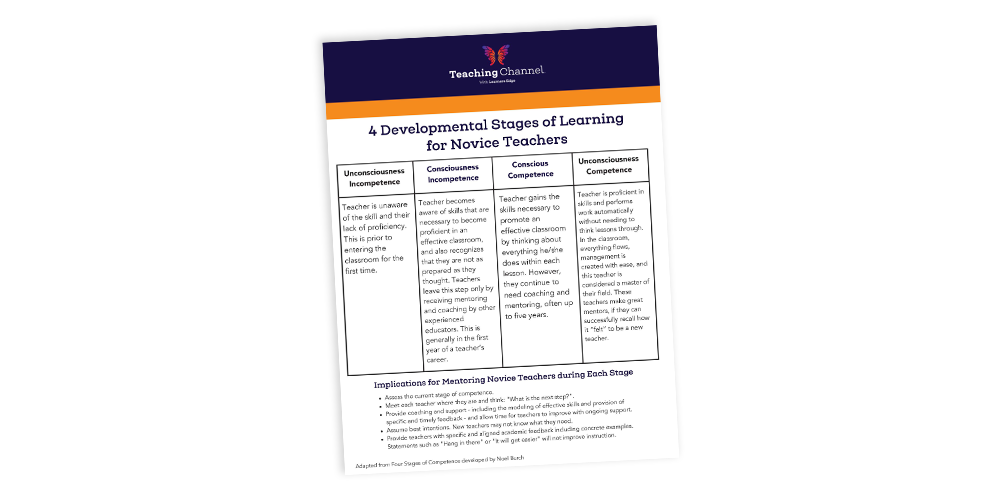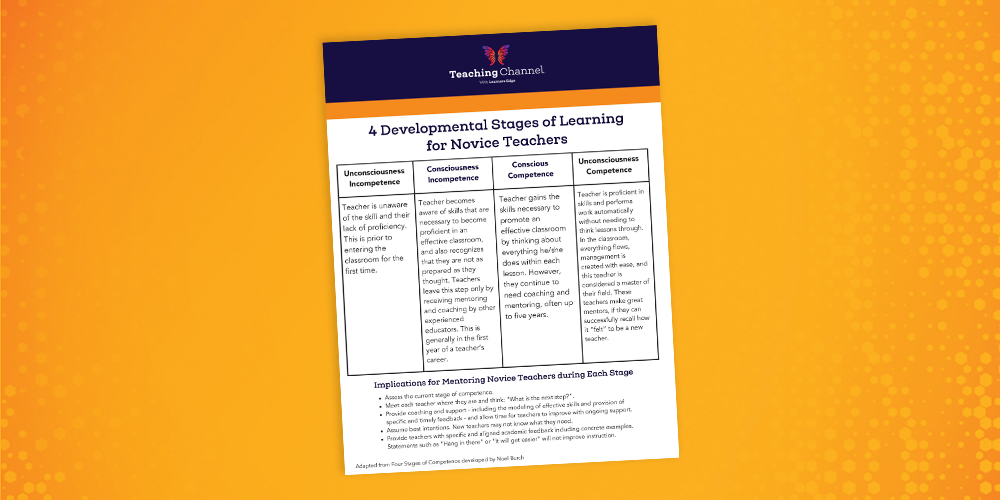Embarking on a teaching career is an exciting journey, but it comes with its fair share of challenges and growth opportunities. New teachers, much like their students, undergo distinct stages of learning and development as they gain experience in the classroom.
To aid in this transformative process, we’ve outlined these critical stages and included valuable guidance on how to support new teachers at each step of their professional journey. Read on to explore these learning stages, or download this list as a PDF to serve as a roadmap, equipping mentors, administrators, and even fellow educators with the insights and strategies necessary to empower new teachers in their quest for excellence.

Unconsciousness Incompetence
The teacher is unaware of the skill and their lack of proficiency. This is prior to entering the classroom for the first time.
Consciousness Incompetence
The teacher becomes aware of skills that are necessary to become proficient in an effective classroom, and also recognizes that they are not as prepared as they thought. Teachers leave this step only by receiving mentoring and coaching from other experienced educators. This is generally in the first year of a teacher’s career.
Conscious Competence
The teacher gains the skills necessary to promote an effective classroom by thinking about everything he/she does within each lesson. However, they continue to need coaching and mentoring, often up to five years.
Unconsciousness Competence
The teacher is proficient in skills and performs work automatically without needing to think lessons through. In the classroom, everything flows, management is created with ease, and this teacher is considered a master of their field. The teachers make great mentors if they can successfully recall how it “felt” to be a new teacher.
Implications for Mentoring New Teachers During Each Stage
- Assess the current stage of competence.
- Meet each teacher where they are and think: “What is the next step?”.
- Provide coaching and support – including the modeling of effective skills and provision of specific and timely feedback – and allow time for teachers to improve with ongoing support.
- Assume best intentions. New teachers may not know what they need.
- Provide teachers with specific and aligned academic feedback including concrete examples. Statements such as “Hang in there” or “It will get easier” will not improve instruction.







